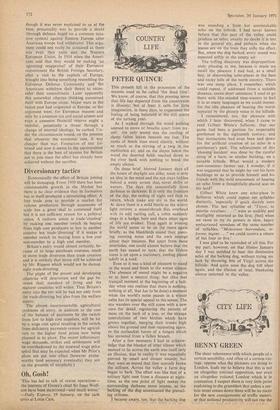Diversionary tactics
Economically the effect of Britain joining will be damaging. From 1950 there has been
commendable growth in the Market but there is no clear evidence that its formation has in itself produced a stimulating effect. A free trade area to provide a market for
volume production through economies of scale has a great-deal to commend itself
but it is not sufficient reason for a political union. A customs union is trade-'creating' by making one member switch its buying
from high cost producers to low in another country but trade-`diverting' if it makes .x member switch its buying from a low cost non-member to a high cost member.
Britain's entry would almost certainly, be- cause of its large purchases overseas, result in more trade diversion than trade creation and it is unlikely that terms will be achieved by Mr. Rippon which would not be damag- ingly trade-diverting.
The plight of the poorer and developing countries will deteriorate and the gap be- tween their standard of living and the maturer countries will widen. Thus Britain's entry into the EEC will be bad not only from the trade-diverting but also from the welfare aspect.
The almost insurmountable agricultural problems of entry, in addition to the cost of the balance of payments by the switch from low to high cost suppliers, will be hit by a wage cost spiral resulting in the switch from deficiency payments system for agricul-
ture to the higher food prices now being planned in its place. The recent inflationary wage demands, strikes and settlements will be overshadowed by the renewed wage price spiral that may be expected when Mr Prior's plans are put into -effect [however praise- worthy (and necessary, eventually) they are on the grounds of simplicity.]

































 Previous page
Previous page